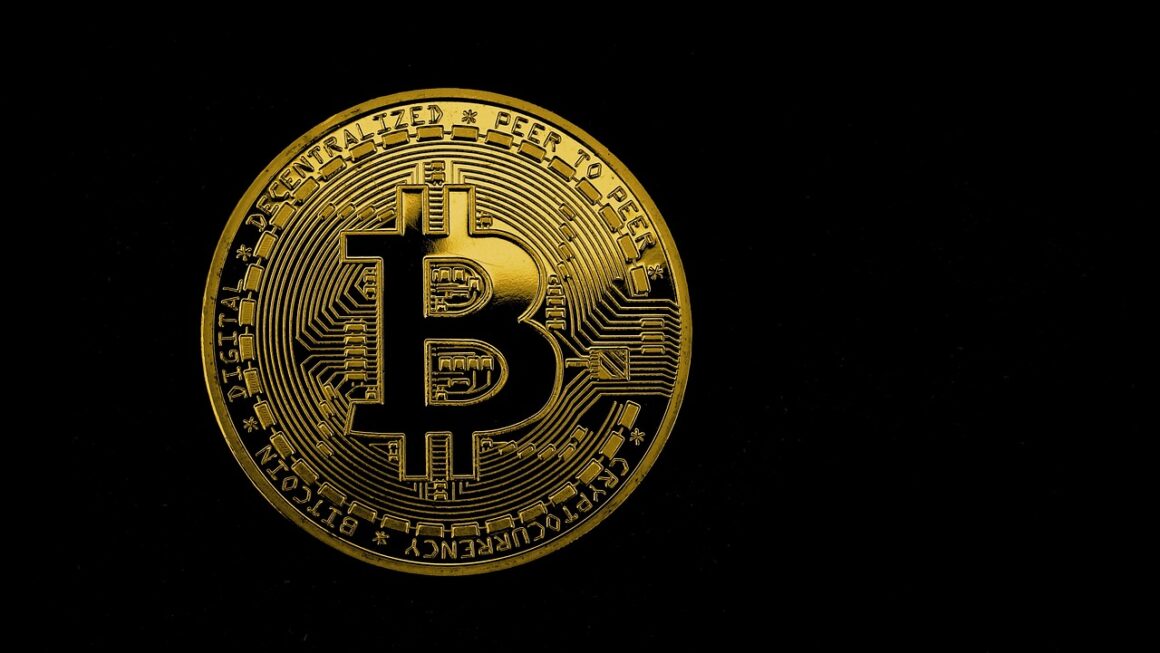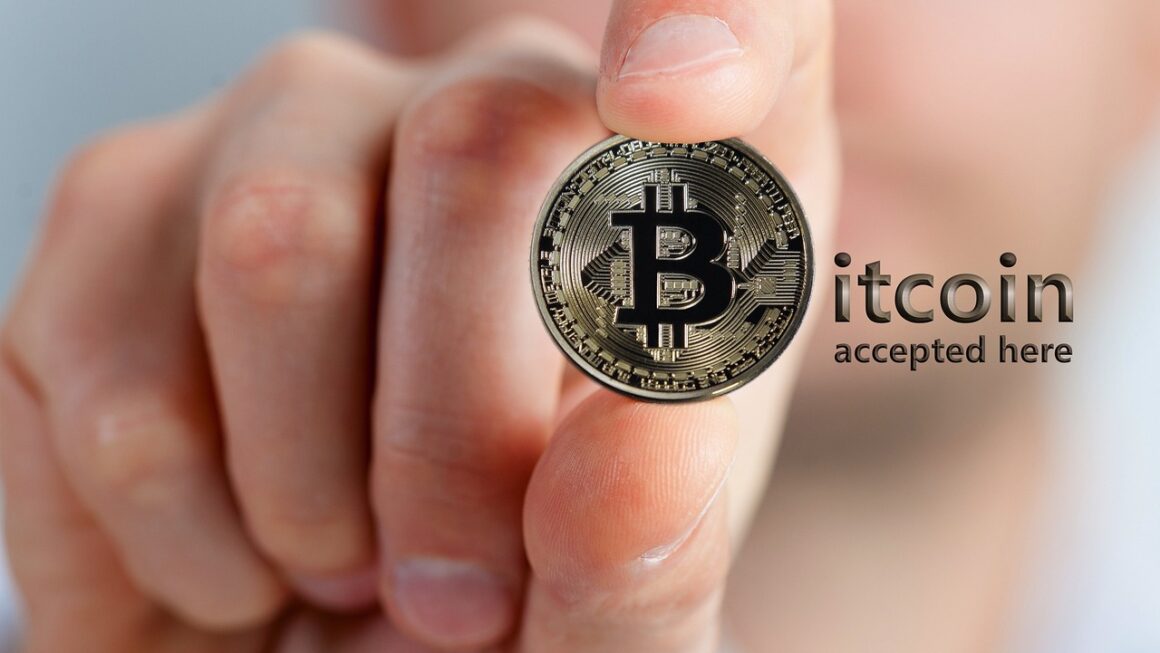In the vast, interconnected universe of digital innovation, few concepts have generated as much buzz and transformative potential as Ethereum. Often mistaken simply as another cryptocurrency, Ethereum is, in fact, a groundbreaking decentralized platform that has fundamentally reshaped our understanding of the internet, finance, and digital ownership. It’s the engine powering the next generation of online applications, moving us from a centralized web to a more open, transparent, and user-controlled Web3. Join us as we explore the intricate layers of Ethereum, from its core technology to its vibrant ecosystem, and discover why it stands as a cornerstone of the decentralized future.
What is Ethereum? Unpacking the World’s Leading Smart Contract Platform
At its heart, Ethereum is an open-source, decentralized blockchain platform. Unlike Bitcoin, which primarily functions as a peer-to-peer digital cash system, Ethereum was designed to be much more versatile. It’s a global computer that can execute complex programs, known as smart contracts, without downtime, censorship, fraud, or third-party interference. This unique capability has made it the preferred platform for developers building the decentralized applications (dApps) that define Web3.
More Than Just a Digital Currency: Understanding ETH
- Ether (ETH): While Ethereum is the name of the platform, Ether (ETH) is its native cryptocurrency. ETH serves a dual purpose:
- Gas Fee: It powers transactions on the Ethereum network. Every operation, from sending tokens to executing a smart contract, requires a small amount of ETH to pay for the computational effort, known as “gas.”
- Store of Value/Investment: Like Bitcoin, ETH can be held as a digital asset and traded on exchanges. It’s the second-largest cryptocurrency by market capitalization, reflecting its crucial role in the decentralized economy.
- Decentralization: Ethereum operates on a network of thousands of computers (nodes) worldwide. This distributed nature means there’s no central authority controlling it, making it resilient to censorship and single points of failure.
- Open Source: The entire Ethereum protocol is publicly available, allowing anyone to inspect, build upon, or propose improvements to the network.
Actionable Takeaway: Understand that “Ethereum” refers to the platform and “ETH” to its currency. When interacting with dApps, you’ll need ETH to cover transaction fees (gas).
The Core Innovation: Smart Contracts Explained
Smart contracts are self-executing contracts with the terms of the agreement directly written into lines of code. They are stored on the Ethereum blockchain and automatically execute when predefined conditions are met. This eliminates the need for intermediaries, reduces costs, and enhances trust and transparency.
- Automated Agreements: Imagine a vending machine for digital agreements. You put in the conditions, and if they’re met, the contract executes automatically.
- Immutable and Tamper-Proof: Once a smart contract is deployed on the blockchain, its code cannot be altered, ensuring the agreement remains unchanged and secure.
- Transparency: All transactions and the contract’s code are publicly visible on the blockchain, fostering trust among participants.
Example: A simple smart contract could be programmed to release funds to a freelancer once their client confirms the completion of a task. No bank or escrow service is needed; the code handles it.
Actionable Takeaway: Smart contracts are the foundational technology enabling automated, trustless agreements on Ethereum. Explore how they can simplify existing processes in your industry.
The Transformative Power of Smart Contracts and dApps
The ability to run smart contracts has unlocked an unparalleled wave of innovation, giving rise to an entirely new paradigm of digital services and applications.
Decentralized Applications (dApps): Building Blocks of Web3
A dApp is an application that runs on a decentralized blockchain network rather than a centralized server. Because they are built on smart contracts, dApps inherit the properties of decentralization, transparency, and censorship resistance.
- User Control: Users typically have more control over their data and assets compared to traditional applications.
- Censorship Resistance: No single entity can shut down a dApp or prevent users from accessing it.
- Open and Transparent: The backend code and transaction history are often publicly auditable on the blockchain.
Example: Brave Browser is a dApp that rewards users with Basic Attention Tokens (BAT) for viewing ads, shifting advertising revenue directly to consumers rather than intermediaries.
Actionable Takeaway: Start exploring popular dApps in areas that interest you, such as decentralized finance or gaming, to experience Web3 firsthand.
Practical Examples: DeFi, NFTs, and DAOs in Action
The Ethereum ecosystem is a thriving landscape of diverse applications, each pushing the boundaries of what’s possible in the digital realm.
- Decentralized Finance (DeFi): DeFi aims to recreate traditional financial services—like lending, borrowing, trading, and insurance—using blockchain technology, eliminating intermediaries like banks.
- Lending Protocols: Platforms like Aave or Compound allow users to lend out their crypto and earn interest, or borrow crypto by providing collateral.
- Decentralized Exchanges (DEXs): Uniswap is a prominent DEX where users can trade cryptocurrencies directly with each other without a centralized exchange.
- Non-Fungible Tokens (NFTs): NFTs are unique digital assets representing ownership of a specific item or piece of content, ranging from art and music to virtual real estate and collectibles.
- Digital Art: Projects like Bored Ape Yacht Club and CryptoPunks popularized NFTs as unique digital collectibles.
- Gaming: NFTs are used for in-game assets, allowing players true ownership of their items (e.g., in Axie Infinity).
- Decentralized Autonomous Organizations (DAOs): DAOs are organizations governed by smart contracts and code, enabling collective decision-making among members without central leadership.
- Community Governance: Members vote on proposals using tokens, directing the future development and treasury management of the organization.
- Investment DAOs: Groups pooling resources to invest in startups or other assets collectively.
Actionable Takeaway: Consider the potential of DeFi to access financial services, explore NFTs for digital ownership, or join a DAO to participate in decentralized governance.
Ethereum’s Evolution: From PoW to PoS (The Merge and Beyond)
Ethereum has undergone significant upgrades to improve its scalability, security, and sustainability, with the most notable being the transition from Proof-of-Work (PoW) to Proof-of-Stake (PoS).
Understanding Proof-of-Work vs. Proof-of-Stake
- Proof-of-Work (PoW):
- How it works: Miners compete using powerful computers to solve complex cryptographic puzzles to add new blocks to the blockchain. The first one to solve the puzzle earns the right to add the block and receives a reward.
- Pros: Proven security, high decentralization (historically).
- Cons: Extremely energy-intensive (high carbon footprint), limited transaction throughput (scalability issues). Bitcoin still uses PoW.
- Proof-of-Stake (PoS):
- How it works: Instead of mining, validators “stake” (lock up) their ETH as collateral. The protocol randomly selects a validator to create new blocks based on the amount of ETH staked.
- Pros: Significantly more energy-efficient (estimated 99.95% reduction), improved scalability potential, lower barriers to entry for participation.
- Cons: Potential for centralization if large entities control significant stakes, though mechanisms are in place to mitigate this.
Actionable Takeaway: Recognize that PoS is a greener and more scalable consensus mechanism, fundamental to Ethereum’s long-term vision.
The Merge: A Landmark Achievement
In September 2022, Ethereum successfully completed “The Merge,” transitioning its consensus mechanism from PoW to PoS. This was one of the most complex and ambitious upgrades in blockchain history.
- Beacon Chain Integration: The existing PoS “Beacon Chain,” which had been running in parallel since 2020, merged with the PoW “execution layer” (the mainnet Ethereum blockchain).
- Environmental Impact: The Merge dramatically reduced Ethereum’s energy consumption by approximately 99.95%, making it one of the most environmentally friendly blockchains.
- Increased Security & Economic Design: PoS introduces stronger economic security through staking, where validators can be penalized (slashed) for malicious behavior, and offers a more sustainable issuance model for ETH.
Actionable Takeaway: The Merge signifies Ethereum’s commitment to sustainability and scalability, positioning it strongly for future growth and adoption.
What’s Next? Scalability and Future Upgrades (The “Surge,” “Verge,” “Purge,” “Splurge”)
The Merge was just one step in Ethereum’s multi-year roadmap. Future upgrades aim to further enhance scalability, security, and user experience.
- Sharding (The “Surge”): This involves splitting the blockchain into multiple smaller chains (“shards”) to process transactions in parallel, drastically increasing throughput.
- Verkle Trees (The “Verge”): Improvements to how nodes store and verify data, making the network more efficient and decentralized by reducing the data nodes need to store.
- Statelessness (The “Purge”): Reducing the amount of historical data nodes need to store, simplifying the protocol and further decentralizing it.
- Additional Features (The “Splurge”): A series of miscellaneous but important improvements and optimizations across the network.
Actionable Takeaway: Stay informed about upcoming Ethereum upgrades, as they will shape the network’s capabilities and its ability to handle mass adoption.
Navigating the Ethereum Ecosystem: Tools and Practicalities
Interacting with Ethereum and its vast ecosystem requires understanding some fundamental tools and concepts.
Ethereum Wallets: Your Gateway to Web3
An Ethereum wallet is a digital tool that allows you to manage your ETH and other tokens, and interact with dApps. It doesn’t physically store your crypto but holds your private keys, which are essential for accessing your assets on the blockchain.
- Types of Wallets:
- Software Wallets (Hot Wallets): Convenient and connected to the internet. Examples include MetaMask (browser extension), Trust Wallet (mobile). Ideal for frequent dApp interaction.
- Hardware Wallets (Cold Wallets): Physical devices that store your private keys offline. Examples include Ledger and Trezor. Offer superior security for long-term storage of significant assets.
- Seed Phrase (Recovery Phrase): A series of words that represents your wallet’s private key. Crucially, never share this phrase and keep it stored securely offline. Losing it means losing access to your funds.
Actionable Takeaway: Choose a reputable wallet (e.g., MetaMask for dApps, Ledger for cold storage) and meticulously secure your seed phrase. Practice sending small amounts of ETH to familiarize yourself.
Understanding Gas Fees and Network Congestion
Gas fees are the cost of performing transactions or executing smart contracts on the Ethereum network. They are paid in ETH and fluctuate based on network demand.
- How Gas Works: Every operation on Ethereum requires a certain amount of “gas” (computational effort). The “gas price” is how much you’re willing to pay per unit of gas, typically measured in gwei (a small denomination of ETH).
- Fluctuating Fees: During periods of high network activity (many users transacting), gas prices increase as users bid higher to get their transactions processed faster.
- Layer 2 Solutions: To combat high gas fees and improve scalability, Layer 2 (L2) solutions like Arbitrum and Optimism process transactions off the main Ethereum chain and then batch them back to the mainnet. These offer significantly lower fees and faster transactions.
Actionable Takeaway: Monitor gas prices using tools like Etherscan’s Gas Tracker before making non-urgent transactions. For frequent or smaller transactions, explore using dApps on Layer 2 networks.
How to Interact: Buying ETH, Using dApps
Getting started with Ethereum is straightforward, but requires careful steps.
- Buy ETH: Purchase Ether from a reputable centralized exchange (CEX) like Coinbase, Binance, or Kraken using fiat currency (USD, EUR, etc.).
- Set Up a Wallet: Create and secure your chosen Ethereum wallet (e.g., MetaMask).
- Transfer ETH: Send your purchased ETH from the exchange to your personal Ethereum wallet. Always double-check the address!
- Connect to dApps: Visit a dApp (e.g., Uniswap.org, Opensea.io) and click “Connect Wallet.” Your wallet will prompt you to approve the connection.
- Transact: Perform desired actions (swap tokens, mint an NFT) and confirm transactions within your wallet, being mindful of the displayed gas fees.
Actionable Takeaway: Always start with small amounts of ETH to practice. Prioritize security by using strong passwords, two-factor authentication on exchanges, and never sharing your seed phrase.
Conclusion
Ethereum is more than just a buzzword; it’s a foundational technology that is actively shaping the future of the internet, finance, and digital ownership. From its revolutionary smart contracts and diverse dApp ecosystem spanning DeFi, NFTs, and DAOs, to its ambitious and successful transition to Proof-of-Stake, Ethereum continues to lead the charge towards a more decentralized, transparent, and user-empowered digital world. While challenges like scalability and user experience are continually being addressed through ongoing upgrades, its journey from concept to global infrastructure demonstrates an unwavering commitment to innovation. By understanding its core principles and engaging with its ecosystem, you’re not just observing the future—you’re participating in its creation. Ethereum represents a powerful shift, inviting everyone to build, create, and interact in a truly open digital frontier.




